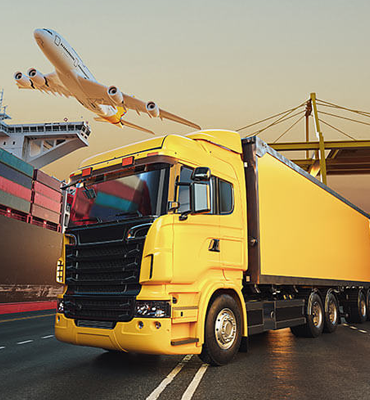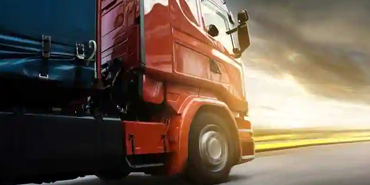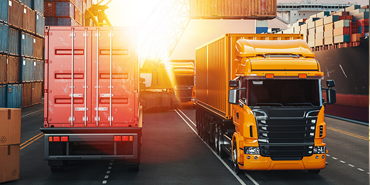Motorised Road Freight Transport
Motorized road freight transport, also known as motorized trucking or road haulage, refers to the transportation of goods and cargo over road networks using motor vehicles such as trucks, lorries, and trailers. It is one of the most common and widely used methods of freight transportation globally, serving as a backbone of the logistics industry and supporting various sectors of the economy.
Key aspects of motorized road freight transport include:
-
Types of Vehicles:
Motorized road freight transport relies on a variety of vehicles, ranging from small delivery vans to heavy-duty trucks and articulated lorries, each designed to handle different types and quantities of cargo.
-
Flexibility:
Road freight offers a high level of flexibility in terms of routes and destinations, providing access to a wide range of locations, including urban areas, remote regions, and places with limited infrastructure.
-
Door-to-Door Service:
Road freight provides a door-to-door service, allowing goods to be transported directly from the shipper's location to the consignee's destination, without the need for transshipment or intermediate handling.
-
Regional and Local Transport:
Motorized road freight transport is commonly used for regional and local transportation of goods, delivering cargo between cities, towns, industrial zones, and distribution centers.
-
Last-Mile Delivery :
It is a critical component of last-mile delivery, which involves transporting goods from distribution centers or warehouses to the final destination, such as retail stores or customers' homes.
-
Suitable for Smaller Shipments:
Road freight is efficient and cost-effective for transporting smaller shipments, especially when the quantity of goods does not justify the use of other transportation modes like rail or sea transport.
-
Time-Sensitive Shipments:
Road freight is well-suited for time-sensitive shipments, as trucks can offer faster transit times for shorter distances compared to other modes of transport.
-
Intermodal Transportation:
Motorized road freight transport is often integrated with other transportation modes in intermodal logistics. It involves using multiple modes (road, rail, sea, air) to transport goods from origin to destination, optimizing efficiency and reducing costs.
-
Challenges:
Road freight faces challenges such as traffic congestion, road infrastructure maintenance, fuel costs, and environmental impact.
-
Safety and Regulations:
Freight transport by road is subject to regulations and safety standards to ensure the safety of drivers, vehicles, and cargo. Regulations cover factors such as vehicle maintenance, load limits, driver working hours, and hazardous materials transportation.
Motorized road freight transport plays a vital role in meeting the transportation needs of businesses, industries, and consumers. It is an integral part of the supply chain, facilitating the movement of goods from manufacturers to retailers and end consumers, contributing significantly to economic growth and development.


